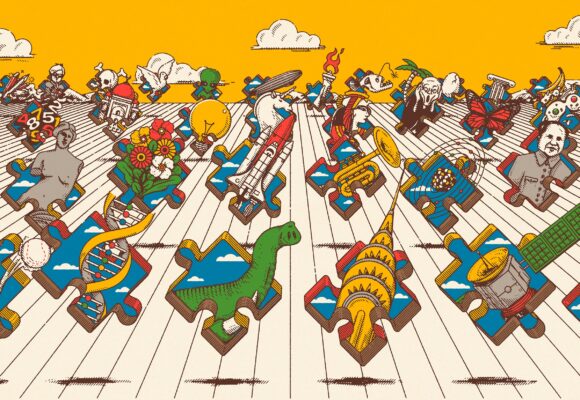Reading Think to New Worlds: The cultural history of Charles Fort and his followers by Joshua Blu Buhs. For New Scientist, 24 July 2024
Joshua Blu Buhs is one of that curious breed who call themselves “independent scholars”. He has written two previous books: one about Big Foot; one about the U.S. Department of Agriculture’s desperate failure to eradicate fire ants in the southern States. Both explore how natural phenomena take hold of the popular imagination, producing anti-authoritarian myths and folk-tales.
How you read Buhs is up to you: is it a celebration of the fecundity, wit and iconoclasm of the human imagination? Or is it a painstaking archaeology of human error and folly?
Think to New Worlds describes the cultural roots, influence and legacy of the work of Charles Fort. I read it as a jaw-dropping account of how one damn fool’s steadfast refusal to admit the truth or otherwise of any given proposition nigh-on destroyed the dreams of the Enlightenment, ended the Age of Reason and tipped us into a hideous and civilisation-ending pit of “post-truth”.
But that’s just me. You may end up revering the man.
Fort, born in New York in 1874, reacted so strongly to the authoritarianism of his father that in adulthood, he evolved and wrote up an entire philosophy — followers dubbed it “Forteanism” — in which “We have expressions: we don’t call them explanations: we’ve discarded explanations with beliefs.”
These days (and largely thanks to the sterling efforts of Bob Rickard, founding editor of the UK magazine Fortean Times) we associate the word “Fortean” with wry scepticism. We’ll entertain number of Fortean perspectives — “on rains of blood and frogs,” to quote Buhs’s list, “on dogs that talked and vampires, on things that appeared and disappeared with no obvious reason, on strange beasts and visions in the sky, on unaccountable fires and impossible powers”; in the end, though, a still, small voice of reason prevails.
But the unputdownable Fortean Times is closer in spirit to Robert L Ripley’s Believe it or Not books than to Ripley’s contemporary Charles Fort in full flower. Ripley was a playful rationalist. Fort was made of sterner stuff (if “sterner” is quite the word) who stirred science, religion and folklore into an acidic combination, easily capable of eating through the walls of consensus reality.
Fort’s scepticism was radical (“dark, Luciferian, fragmented, simultaneously serious and ridiculous” says Buhs). He refused to accept anything as absolutely true or absolutely false. He wrote, it is true, at a time when anything and everything seemed possible. (His The Book of the Damned came out in 1919, the same month Guglielmo Marconi claimed to have detected radio signals from Mars.) Still, it’s a rare thinker who can weaponise reports of rains of frogs to launch attacks on Euclid, Darwin, Newton and geology.
Buhs describes how Fortean Society founder Tiffany Thayer, “a novelist, adman, and provocateur,” carried Fort’s ideas into the mainstream of western culture through his energetic promotion of science fiction, ufology and avant-garde art. He also confronts head-on how the Forteans’ vaunted scepticism left them vulnerable to the blandishments of strong men. The Foretean sf writers James Blish and Eric Frank Russell were both drawn to fascist ideas. Thayer’s own pacifism tipped into appeasement, as when he claimed the Second World War was a “gigantic hoax”, perpetrated to benefit the banking class.
Fort believed that science was stripping the enchantment from a once enchanted world. Thayer went further, writing to the poet Ezra Pound in 1948 that scientists, astronomers, doctors, teachers were “the first conditioners of infant mentalities, and they create the thought habits (genuflections) which permit all the abuses which the political and economic reformers are trying to rectify.”
It’s but a hop, skip and a jump from here to conspiracy theory and what the historian Richard Hofstadter called “The Paranoid Style in American Politics.”
Buhs is scrupulously fair to Fort and his intellectual legacy, but I suspect even the most captivated observer may in the end have to agree with the sf writer Arthur Clarke. Looking back with some regret on the Fortean experiment, he wrote: “Scepticism is one thing; stupidity is another.”



